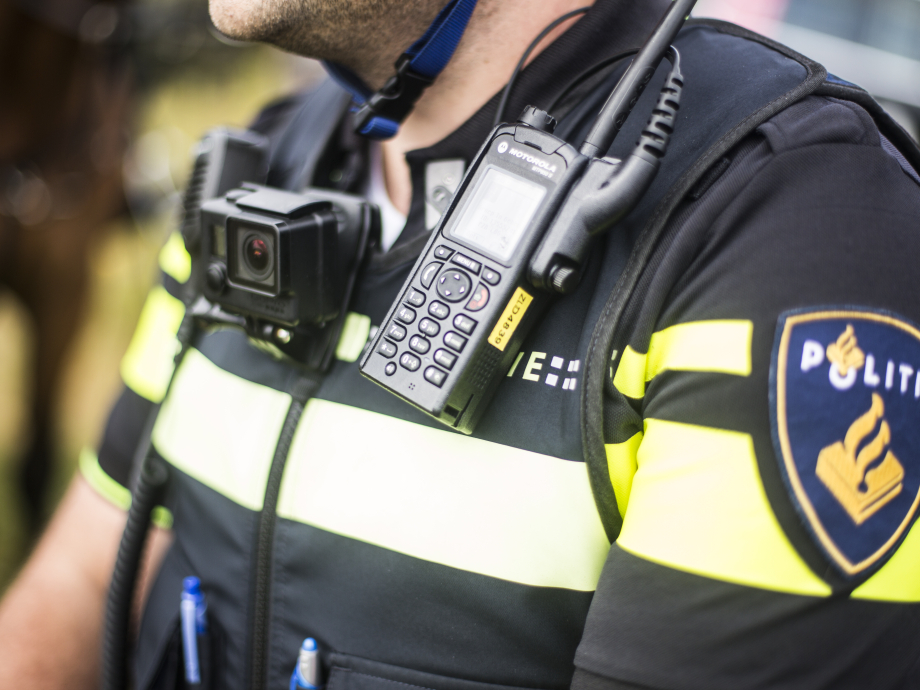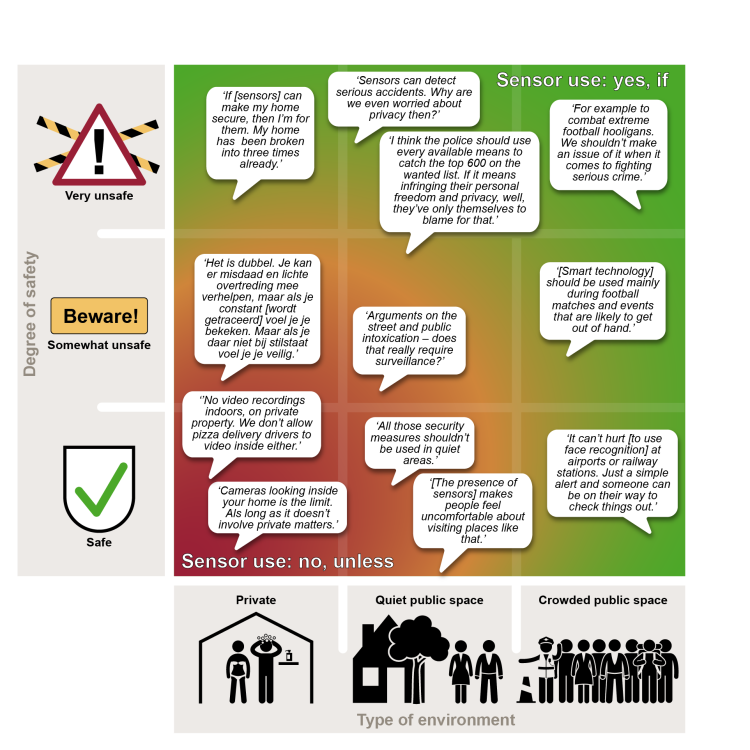Dutch citizens set conditions for the use of sensors by the police
The safer the Dutch assess a situation, and the less public a space is, the more they reject the use of sensors - such as bodycams - by the police. Conversely, they find the use of sensors by the police acceptable if a situation in the public space is busy or unsafe. However, society must be involved in the way that this happens, and it must be done transparently.

This is evident from a study into the perspective of citizens on the use of sensors for safety and quality of life, which the Rathenau Instituut is presenting today.
The research was done at the request of the police and is based on interviews, research among focus groups, and literature research.
Sensors collect an enormous amount of data
The Netherlands has an increasing number of sensors that are intended to improve quality of life and safety. These sensors are becoming increasingly smaller and can measure more and more. For example, the police sometimes use bodycams and there are wifi trackers that can accurately map crowds.
Citizens and companies use the most sensors: around 1.5 million, apart from the smartphone that almost everyone has in their pocket. Municipalities have placed 3,000 cameras and the police use 500 to 1,000. Together, sensors collect an enormous amount of data.
The Dutch are not generally in favor of it or against it. It mainly depends on the situation. For example, sensor deployment is more accepted to track serious criminals, and much less when technology comes close, such as cameras that record who enters and exits a house.
Citizens expect the police to look for balance
The study makes clear that Dutch citizens see think about sensor use in a nuanced way. What matters to them is that besides security and privacy, attention is also paid to other values, such as democratic rights, transparency, efficiency, and human contact. Citizens expect the police, in consultation with society, to find a good balance between different values.

Based on this research, the Rathenau Instituut has drawn up eight rules that can be used by the police as well as other government services, as well as companies and citizens.